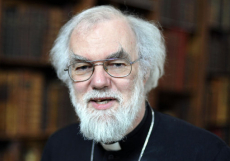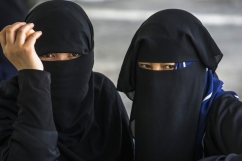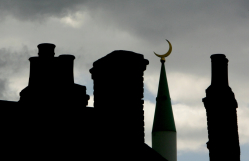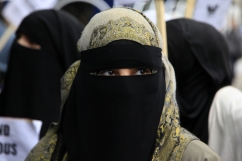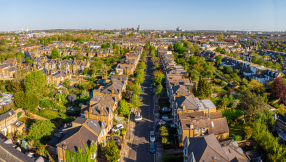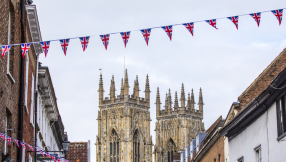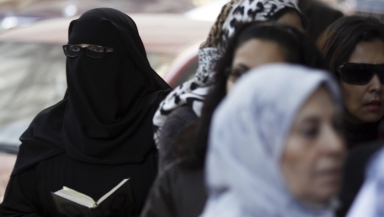
Egypt could ban women from wearing the Muslim face veil in public places under draft legislation currently being written in the Muslim-majority country.
Many Egyptian Muslim women choose to wear the veil, or niqab, in public or in front of men. The proposed ban would be upheld in public places and government institutions, according to the Independent.
MP Amna Nosseir, professor of comparative jurisprudence at Al-Azhar University in Cairo, announced that the Egyptian Parliament was drafting the law on Monday. She said the niqab is non-Islamic in origin, instead claiming it has Jewish roots. It is not required by Sharia law, she added.
In an interview with satellite channel ONtv, she cited the Qur'an: "Say to the believing men that they should lower their gaze and guard their modesty: that will make for greater purity for them: And Allah is well acquainted with all that they do."
This shows that women are not required to wear the burqa, Nosseir said. "How did Islam impose the niqab if Muslims are asked in the Quran to lower their gaze?"
She told Gulf News that she had been saying the niqab is not an obligation for Muslim women for more than two decades, and said had been "harshly criticised" for her views.

"The niqab is not an Islamic duty," she insisted. "We seek to spread moderate Islam. Wearing the niqab in public has raised concerns in the Egyptian streets in view of the hard circumstances the country is undergoing."
However, Nosseir's colleague at Al-Azhar University, professor of religion and philosophy Fouad Abdel-Moneim, has condemned the government's plans.
"Communities are destroyed wherever immorailty spreads," he said. "Ban nudity instead of banning the niqab".
Monday's announcement follows restrictions placed on doctors and nurses studying at Cairo University from wearing the niqab in teaching hospitals and medical schools. Academic staff at the university are no longer allowed to wear the niqab in classrooms over fears it was leading to "poor communication" with students.










